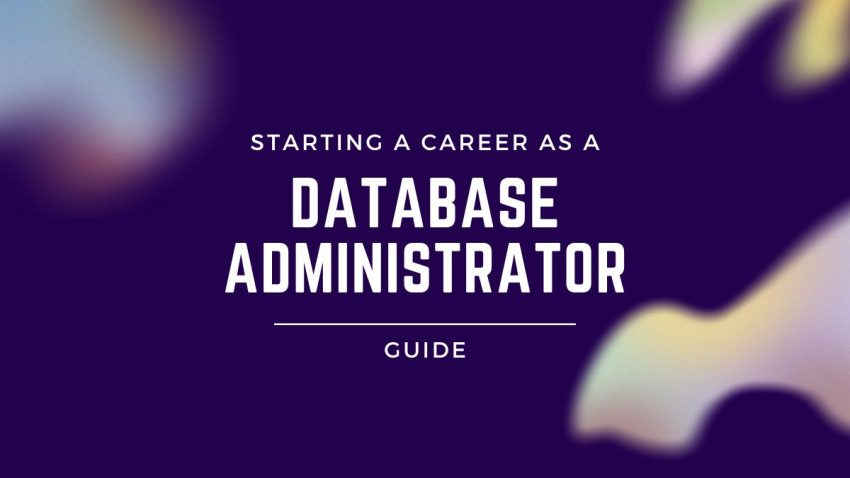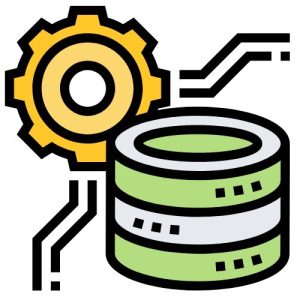A Beginner’s Guide to Starting a Database Administrator Career

Database Administration Career Guide
Are you interested in becoming a successful database administrator (DBA)? It is a rewarding career path that requires technical knowledge and organizational skills. This guide will provide you with a comprehensive overview of what it takes to start a career in database administration.
Key Roles and Responsibilities

Database administration is the process of building, maintaining, and What Is a Database? The Basics of Databases managing databases to store and organize data. It is critical for businesses to have effective and efficient databases to ensure that the data is secure and accurately kept.
As a database administrator, you will have a vast array of tasks and responsibilities. Your main role is to properly manage and secure databases. Some of your key responsibilities will include the following:
Different Types of Database Management Systems
There are many different types of database management systems that you will work with as a DBA. These systems include relational databases, NoSQL databases, and hybrid databases.
Relational Databases
Relational databases are the most commonly used databases in the business landscape.
NoSQL Databases
NoSQL databases emerged as an alternative to relational databases due to the limitations in scalability and performance when handling large amounts of data.
Hybrid Databases
Hybrid databases are a combination of relational and NoSQL databases. They use SQL for data management and NoSQL for storing unstructured data.
Practice makes perfect. Take a look at these accessible databases to practice SQL so you can get first-hand experience working with SQL.
Exploring Job Opportunities in Database Administration

As technology continues to advance and become an integrated part of our daily lives, the demand for skilled and experienced database administrators will continue to increase.
These professionals are in high demand in many industries including healthcare, government, education, and finance. Database administrators earn a median annual salary of $72,250 – $106,470, depending on the industry and experience level.
There are several industries that are expected to experience growth in the hiring of database administrators in the near future. The healthcare industry is expected to experience a high demand for database administrators as the use of healthcare data and analytics continues to rise.
Likewise, the education sector is expected to see an increase in the demand for database administrators due to the growing adoption of technology in schools.
Prerequisites and Certifications
Before you can pursue a career as a database administrator, you will need to make sure that you have all the technical skills and expertise required. This can be challenging, especially if you are new to the field.
In addition to acquiring the necessary technical skills, you will also need to pursue the relevant certifications that will demonstrate your expertise and set you apart from the competition.
Here are some of the major certification programs available:
- Oracle Database Administrator
- Azure Database Administrator Associate
- IBM Certified Database Administrator
Building the Necessary Skills and Expertise
As you pursue the necessary skills and expertise to become a successful database administrator, here’s how you can accelerate your growth.
First, you should identify the database technologies that you will be working with. This will not only help you learn the skills necessary to enter the field but also be useful in your everyday job.
Once you have identified the database technologies that you will be working with, you should also identify the skills that you need to acquire. This will help you identify the necessary training and resources you will need.
Career Advancement Opportunities
There are many career advancement opportunities for database administrators. The key to advancing in this field is to be proactive and keep an eye on emerging trends in technology and business.
Some of the most common career advancement opportunities include the following:
Conclusion
A career in database administration is challenging, dynamic, and rewarding. As an up-and-coming technology, there are many opportunities for growth and advancement, especially for entry-level DBAs. The demand for skilled database administrators will continue to rise and the opportunities for success and growth are endless.
If you are interested in a database administration career, you will need to start by assessing your current skill set. Next, you can start building upon your knowledge to acquire the necessary skills and expertise. Once you have acquired the necessary skills and expertise, you can start on your journey toward success.

Related Data Management
A Beginner’s Guide to Starting a Database Administrator Career
How to Become an Entry-Level Database Administrator
10 Essential Data Management Tools
PostgreSQL vs MySQL: A Comparison of the Two Databases
Why Use Microsoft Access Over Excel: What You Need to Know
Where Can I Get Free Databases to Practice SQL?
What Is a Database? The Basics of Databases
An Overview of Different Database Types